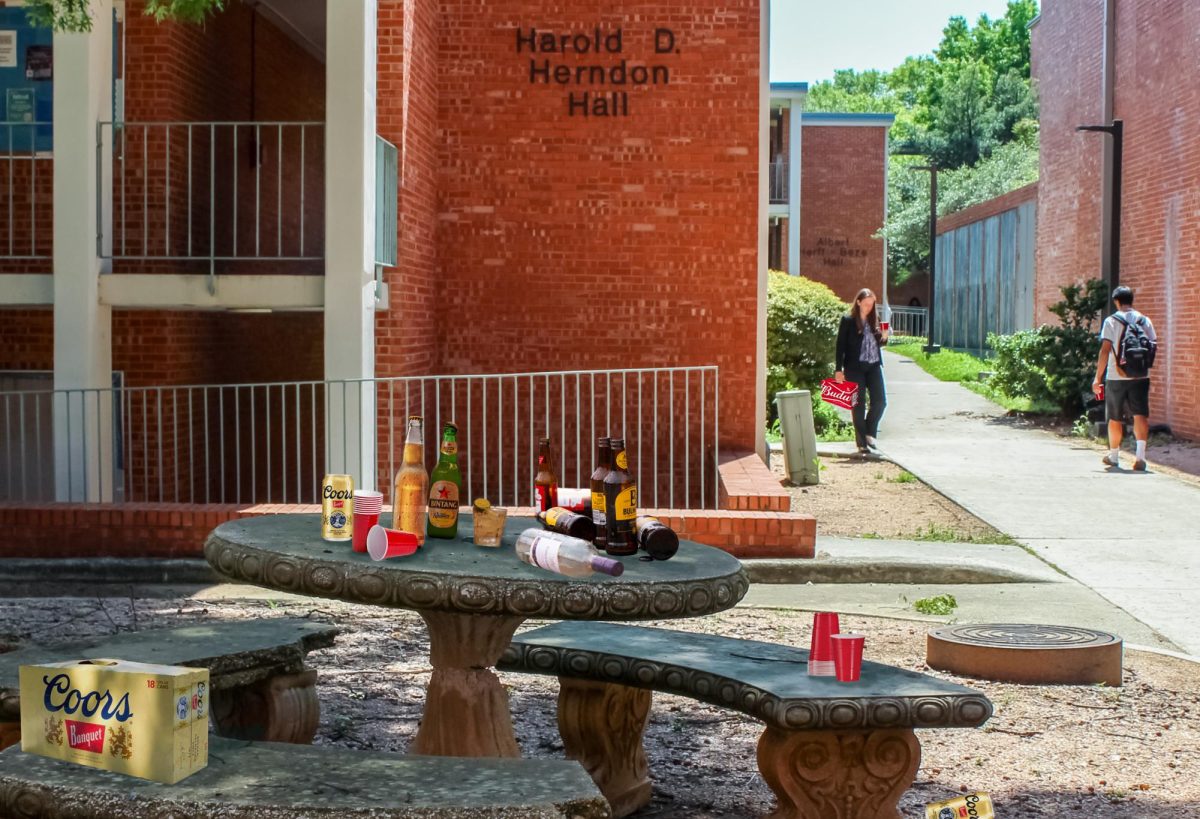American poetry giant Gerald Stern visited the stable at the Pearl Brewery on April 17 to spend an evening conversing about the influences and motivations behind his latest book of prose.
The book, Stealing History, is the second book Stern has published with Trinity University Press and deals with the tendency of writers to “steal” historical events and make them their own.
Tuesday’s event was titled “The Poet in Society” and featured another prominent American poet: Dean Young, a professor of poetry at the University of Texas at Austin.
The two men discussed the difference between writing poetry and writing prose. Stern explained that his prose often moves like a poem, focusing on associations and what he called “chance writing.”
The importance and use of humor in poetry was also discussed throughout the night.
Jenny Browne, poet and assistant professor of English, found the discussion of humor interesting.
“Both Gerald Stern and Dean Young are thought of, I think, as funny poets, but I think that’s deceptive because one of the things that they talked about was that the things we laugh at aren’t always very funny. There was one moment where with Dean Young where some said, “˜Why do you write such funny poems?’ and Dean Young said, “˜Well, because life is short and then we die,’ and then the person started laughing,” Browne said.
The conversation also included a discussion of whether or not rap should be considered poetry. Young opposed labeling rap “poetry,” a position he defended by explaining his belief that poetry is a writing-focused art, while rap relies heavily, if not entirely, on speaking.
However, Young id inform the audience about his belief in the importance of singing. Browne found his discourse on the importance of turning thoughts into music captivating.
“That was the thing I walked away with. Both of them were these brilliant, funny, political, thoughtful people who also just emphasized the idea that poetry’s this way of making a music of ideas,” Browne said.
Stern has published numerous books and volumes of poetry. In 2006, he was elected chancellor of the Academy of American Poets. The award followed an a career that includes the following honors: Paris Review’s Bernard F. Conners Award, the Bess Hokin Award from Poetry, the Ruth Lilly Prize, four National Endowment for the Arts grants, the Pennsylvania Governor’s Award for Excellence in the Arts, the Jerome J. Shestack Poetry Prize from American Poetry Review, and fellowships from the Academy of American Poets, the Guggenheim Foundation, and the Pennsylvania Council on the Arts.
Young has also published numerous volumes of poetry in addition to the receiving fellowships from Stanford University, the Fine Arts Work Center in Provincetown, the National Endowment for the Arts and the Guggenheim Foundation. His work has also appeared in The Best American Poetry series.







